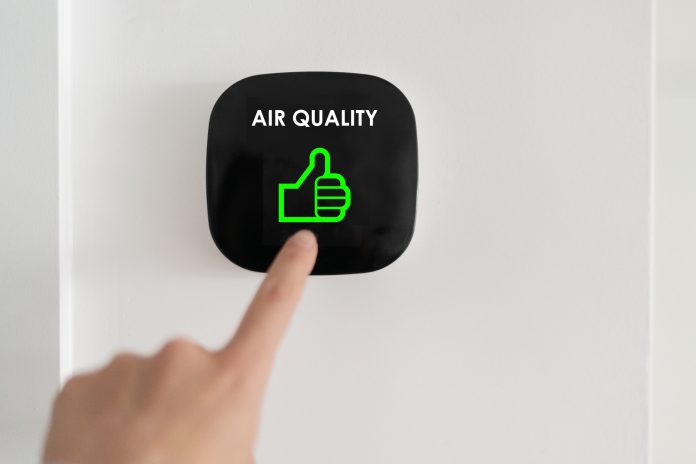As you age, your lung capacity and immune system often weaken, making you more susceptible to respiratory illnesses. Poor air quality within your home can exacerbate these health issues. Understanding the link between home air quality and your well-being is crucial, as indoor air often contains more pollutants than outdoor air.
Air quality isn’t just about the absence of pollution. It’s about creating an environment that actively supports your respiratory health. Pollutants might be invisible and odorless, yet they can silently impact your well-being.
This article explores practical strategies to safeguard your respiratory health, tailored specifically for seniors. Learn how to enhance the air you breathe daily, ensuring a healthier, more vibrant lifestyle in your golden years.
-
Understand The Significance Of Indoor Air Quality
The quality of air inside your home is an invisible yet critical aspect of your environment. It’s a little-known fact that indoor air can be more polluted than outdoor air. This is especially concerning for seniors, as aging lungs are more susceptible to pollutants. Indoor air pollution sources like dust mites and mold spores are numerous and often overlooked.
Awareness of common indoor pollutants and their sources is crucial in combating this issue. Everyday activities such as cooking, cleaning, and using personal care products can release contaminants into the air. Recognizing these sources is your first step toward a healthier indoor environment.
-
Invest In Effective Air Purifiers
Investing in air purifiers is a smart way to maintain indoor air quality. These devices trap and remove airborne particles and allergens, significantly benefiting seniors with respiratory issues. When selecting an air purifier, consider the size of your room and the type of filter used.
If you’re curious about the effectiveness of different products in purifying your home’s air, consider exploring various air purifier reviews. These reviews can provide valuable insights into how different models and technologies perform in real-world settings, helping you make an informed decision about what’s best for your home.
-
Emphasize The Role Of Proper Ventilation
Effective ventilation is essential for maintaining good air quality indoors. More than just opening a window, it involves ensuring a continuous flow of fresh air to dilute and remove pollutants.
Proper ventilation reduces moisture levels, preventing mold growth and decreasing airborne contaminants. As a senior, you might have concerns about energy costs or outdoor pollution affecting your indoor air.
Yet, efficient ventilation methods exist that do not compromise air quality or thermal comfort. Strategies like using exhaust fans in high-humidity areas, such as kitchens and bathrooms, and incorporating trickle vents can significantly improve indoor air quality.
-
Prioritize Regular Cleaning
Regular cleaning is pivotal in maintaining indoor air quality. Dust, pet dander, and other allergens accumulate, potentially worsening respiratory issues. A clean home can significantly reduce these irritants.
The frequency and methods of cleaning are equally important. Choose vacuum cleaners with HEPA filters to trap fine particles effectively. Using natural cleaning products also minimizes harmful chemicals in the air, making your cleaning routine both effective and health-conscious.
-
Control Humidity Levels For Optimal Comfort
Balancing humidity levels is essential for good indoor air quality. Excessive humidity promotes mold growth and dust mites, while insufficient humidity irritates the respiratory tract. The right humidity level is significant for seniors, impacting respiratory comfort.
Using a hygrometer to monitor your home’s humidity can be beneficial. Aim for an indoor humidity level between 30% and 50%. Employing dehumidifiers in damp areas and humidifiers during dry seasons helps maintain this balance, contributing to a healthier air environment.
-
Explore The Benefits Of Houseplants
Houseplants are more than decorative elements; they act as natural air purifiers. Some plants can filter out common volatile organic compounds (VOCs) and enhance air quality. Integrating houseplants into your home is a simple yet effective way for seniors to boost respiratory health.
While plants do not replace air purifiers or proper ventilation, they serve as an excellent complement. Varieties like spider plants, peace lilies, and snake plants are not only effective air purifiers but also require low maintenance, suiting senior lifestyles well.
-
Monitor Air Quality Regularly
Monitoring your home’s air quality empowers you to make necessary health adjustments. Now widely available, air quality monitors can measure pollutants, including VOCs, particulate matter, and carbon dioxide levels.
Proactive air quality management can significantly impact your health and well-being as a senior. Regular monitoring helps identify potential issues early, allowing for prompt and practical solutions.
Conclusion
Your home should be a haven, especially as you age. Ensuring the air you breathe is as pure and healthy as possible is integral to this. Understanding the factors affecting indoor air quality and implementing these steps can greatly improve your respiratory health.
Caring for the air in your home is as important as caring for yourself. This guide equips you to create a healthier, more breathable living space.
























